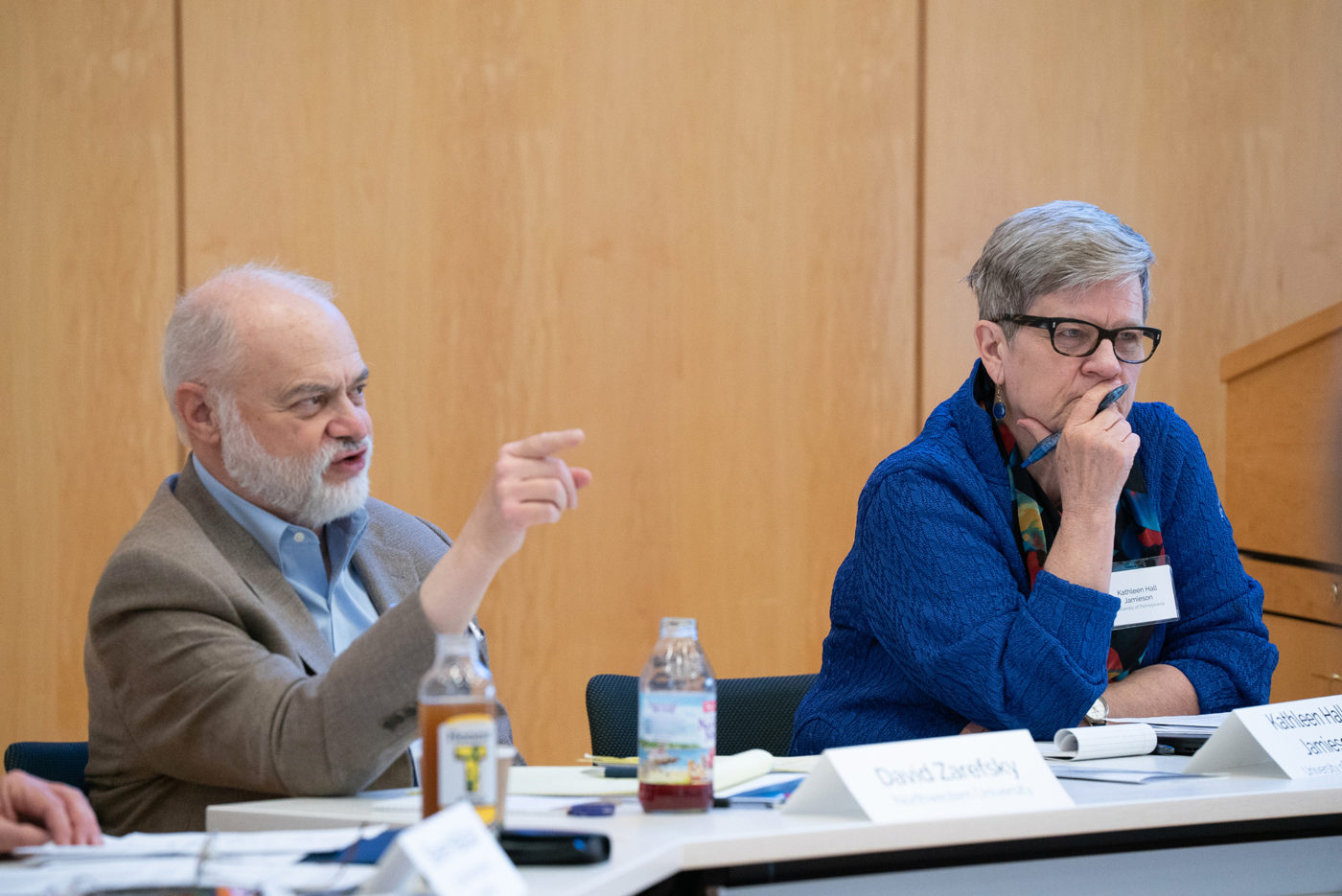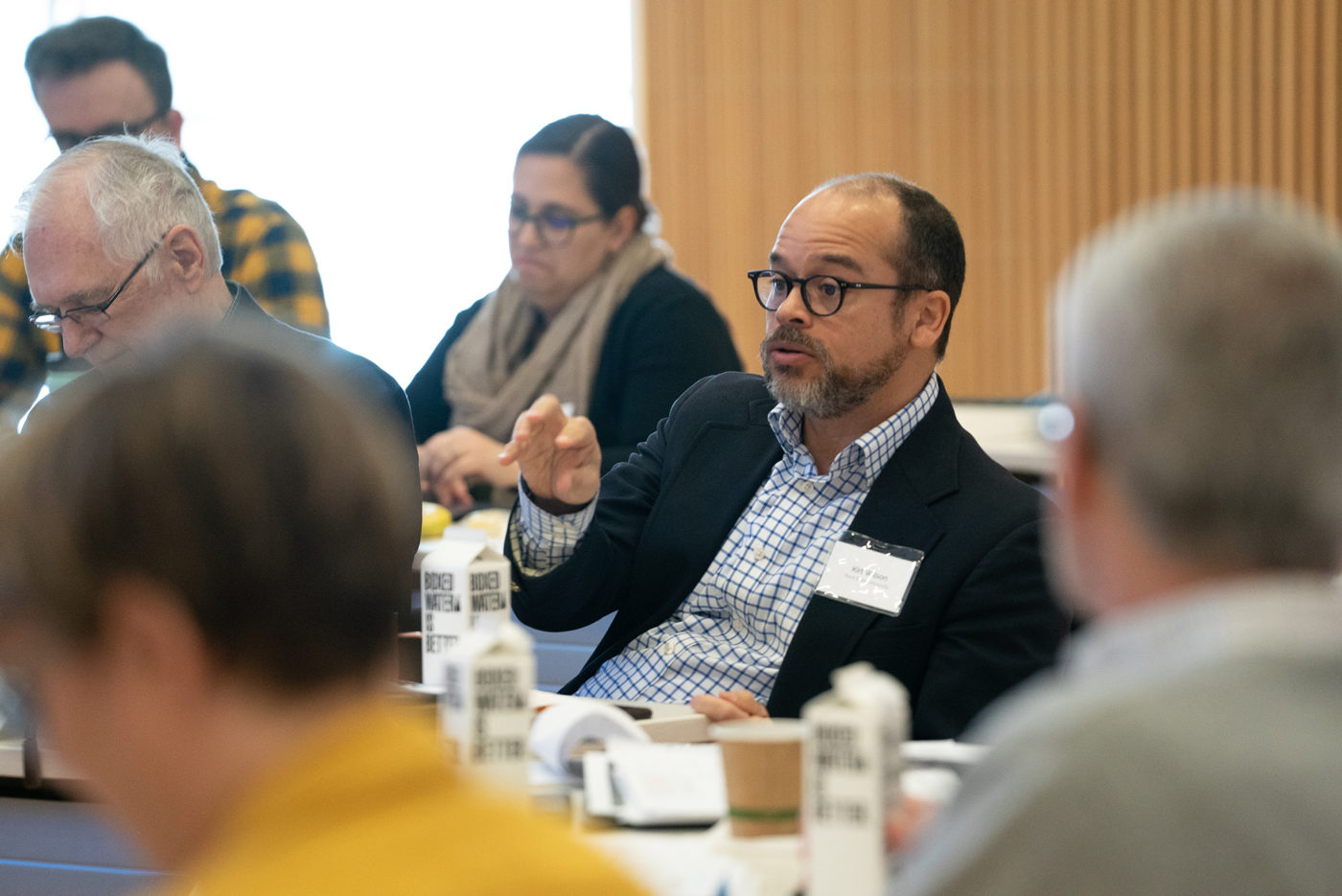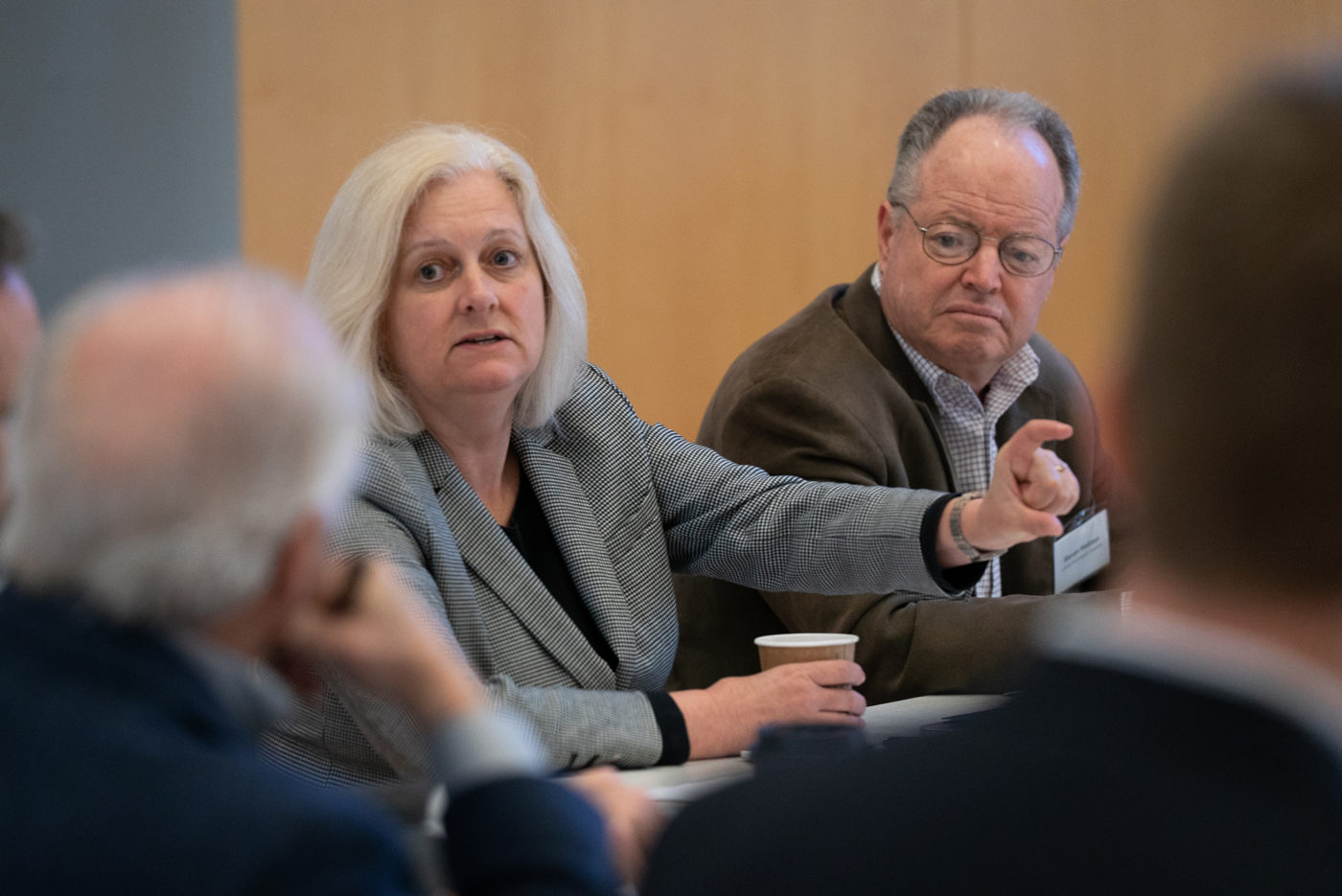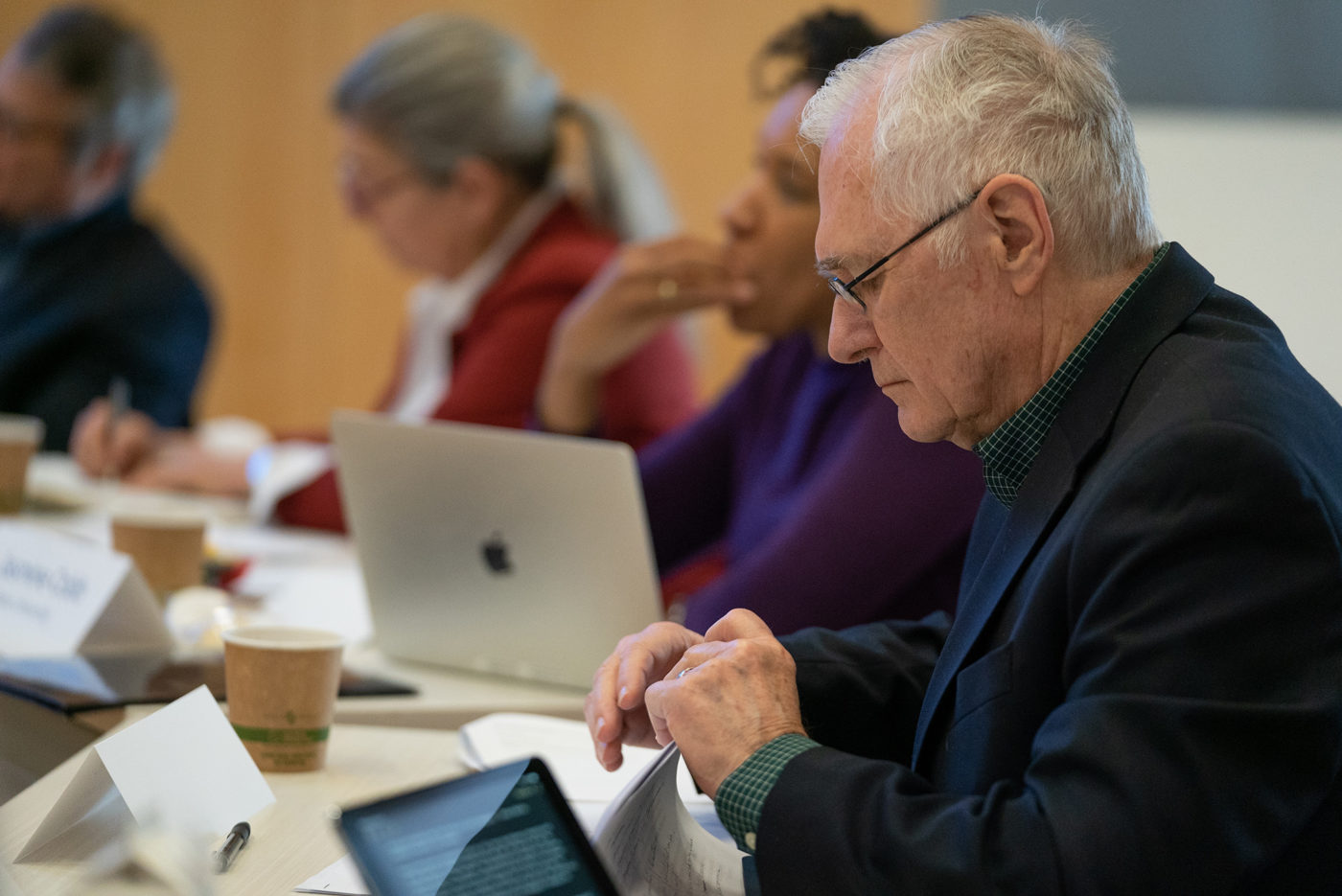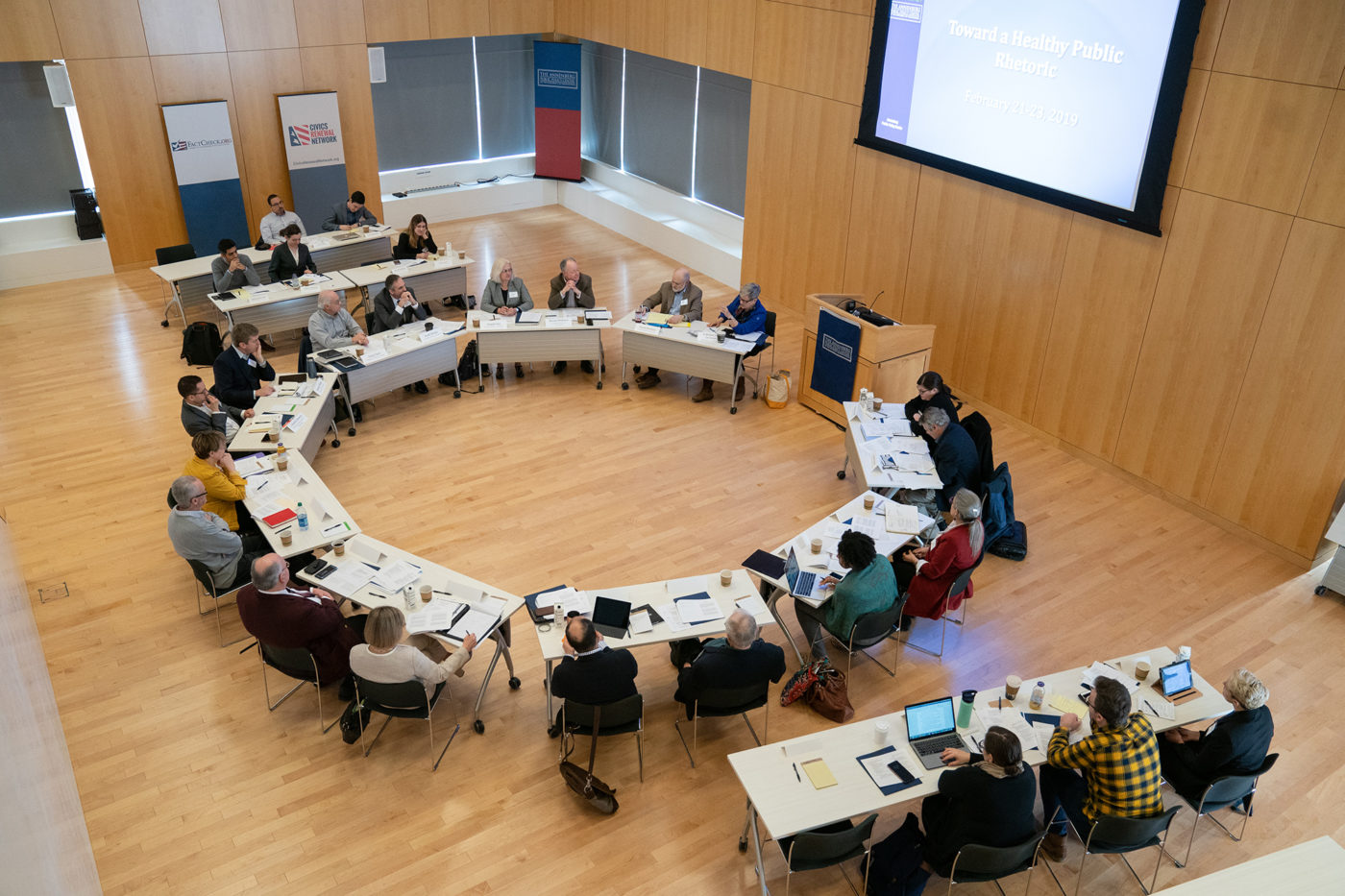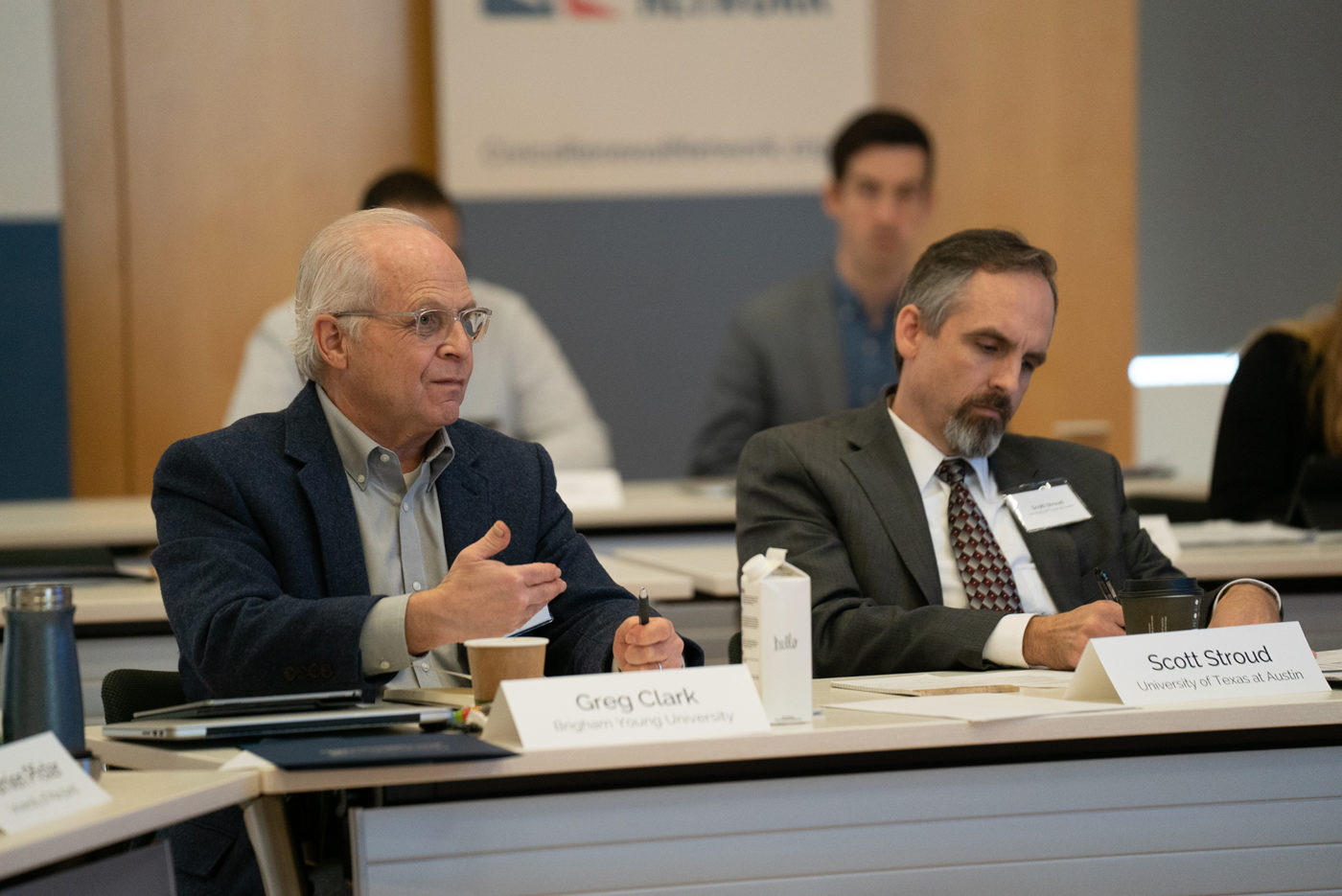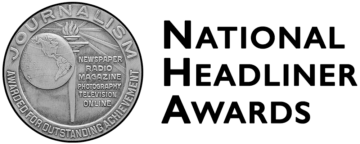What is the role of rhetoric in political culture when language is being debased and norms are being shattered? What is the role of the rhetorician?
These questions were taken up last month as the Annenberg Public Policy Center (APPC) hosted some 30 scholars and students for a three-day conference titled “Toward a Healthy Public Rhetoric.” The gathering of scholars, members of the Rhetoric Society of America (RSA), was co-convened by David Zarefsky, a professor emeritus of communication studies at Northwestern University, and APPC Director Kathleen Hall Jamieson. The group also included 10 students from the Annenberg School for Communication at the University of Pennsylvania.
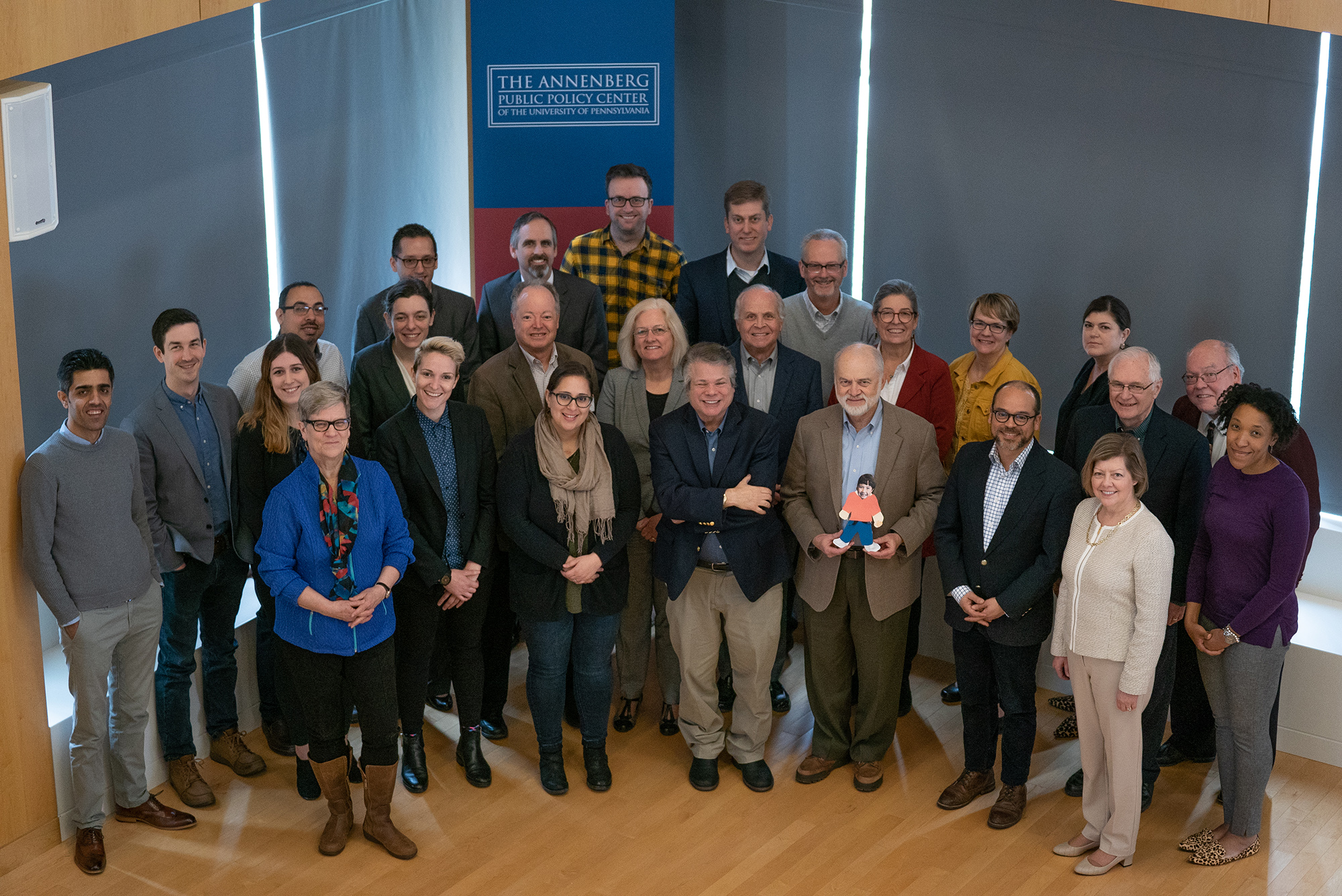
The APPC session continued a conversation that took place at last summer’s RSA conference in Minneapolis, where Zarefsky, Jamieson and other rhetoric scholars were “lamenting the state of American political discourse as it has been the last couple of years,” Zarefsky said.
The state of discourse in America summoned echoes of the McCarthy era, when a handful of scholars took public positions on standards of discourse, said Zarefsky, who was an APPC visiting scholar in 2018. “A few issued public statements saying, in effect, that during a time of crisis it is important to restate what rhetoric is,” he said.
Among the topics that the current scholars took up in sessions at the APPC conference were “Factors undercutting a healthy discourse climate,” “Restoring respect for the other, acknowledgement of fallibility, openness to persuasion,” “Restoring norms of good argument,” “Restoring respect for deliberation and reasonableness; distinguishing between legitimate and illegitimate character attacks,” and “Restoring respect for evidence.”
Zarefsky said the group hopes to produce a white paper and other public documents reinforcing rhetorical norms, including respect for those with whom we disagree as “adversaries, not enemies.”
